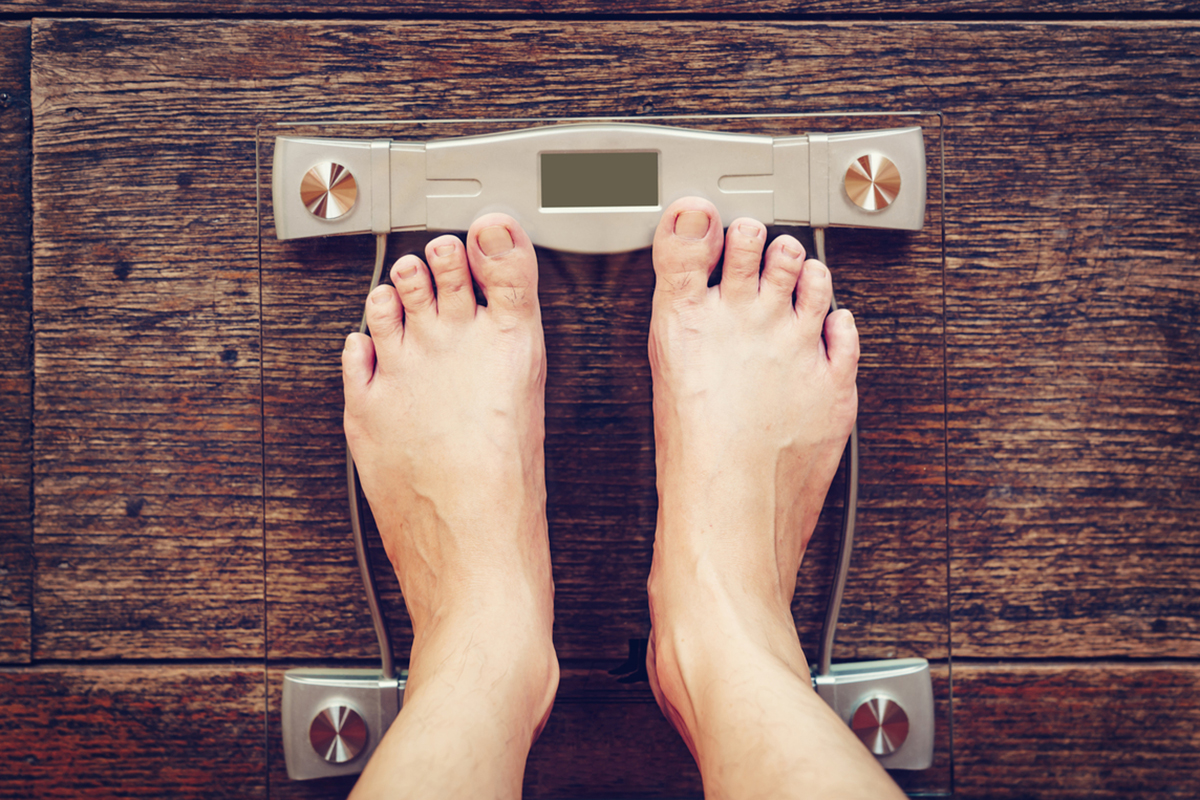Anorexia nervosa takes its toll on every aspect of health. Here are the 15 most common medical complications of anorexia chosen from a much longer list.

Acrocyanosis
Anemia
People who live with anorexia often develop pernicious anemia, which is caused by deficiencies in vitamin B12. Symptoms of this form of anemia include easy fatigue,easily getting short of breath, swollen tongue, muscle weakness, and mental fog. B12 injections can treat this kind of anemia quickly.
Blindness
Vitamin A deficiencies in anorexia can cause night blindness, or, in rare instances, total loss of sight.
Chronic constipation
A majority of people who live with anorexia suffer from inability to pass stools or unusually hard stools. Many experience vomiting and bowel movements at the same time.
Dehydration
People who don't eat enough usually don't consume enough fluid. Dehydration, sometimes requiring emergency room treatment or dehydration, is not unusual in people who live with anorexia, especially during hot weather.
Dementia
Fructose sensitivity
Fruit and high-fructose corn syrup cause stomach upset in people who have anorexia. The problem is especially severe after eating apples, pears, peaches, and prunes, because these fruits contain not just fructose but also sorbitol, which draws fluid into the large intestine. This results in runny diarrhea and gas.
Hardening of the arteries
People who live with anorexia nervosa develop arterial stiffness and atherosclerosis like that seen in people who live with obesity. In teenage girls, anorexia is a stronger risk factor for arterial stiffness than obesity. Anorexia disables the peripheral nervous system's ability to tighten and loosen blood vessels in response to changes of temperature and stress.
Incontinence and urine-related 'accidents'
In teenage girls and women who live with anorexia, hormonal changes and protein deficiencies can cause bedwetting, daytime incontinence, and uterine prolapse. Bedwetting also occurs in young males who live with anorexia. Very few people who have anorexia and this life challenge seek medical help, but there are medications that can help control the condition.
Infertility
Young women who live with anorexia usually have scanty periods or no periods at all. Because they do not ovulate, they are infertile.
Micronutrient deficiencies
People who have anorexia not only suffer deficiencies of calories, carbohydrates, protein, and fat, they also suffer from nutritional deficits of B vitamins, vitamin C, vitamin D, vitamin E, copper, iron, manganese, zinc, and omega-3 essential fatty acids.
Oral health issues
Self-induced vomiting damages the salivary glands to cause "puffy cheek" syndrome. Repeated exposure to stomach acid erodes the enamel on the teeth, more severely on the back sides of the teeth. People who purge usually suffer chronic halitosis and frequent mouth infections. Dry mouth from vomiting can cause sinus irritation and dry eyes.
Osteoporosis
Scurvy
Scorbutus, more commonly known as scurvy, is a vitamin C deficiency disease that interferes with the formation of collagen in connective tissues. The result can be bleeding gums, lose teeth, and conjunctivitis, followed by severe weakness and easy infection. Scurvy is easily remedied by getting enough vitamin C and its cofactors found in plant foods.
Suicide
A study found that 28 percent of people who have anorexia have made at least one suicide attempt. The attempted suicide rate in males who live with anorexia is much lower than the rate in females who live with the disease. About four percent of males who have anorexia attempt suicide. In female anorectics who only seek to avoid food, who do not purge, the suicide rate was seven percent. In female anorectics who attempted to purge calories by self-induced vomiting, use of laxatives and diuretics, and/or excessive exercise, the attempted suicide rate was 30 percent.
- Brown KL, LaRose JG, Mezuk B. The relationship between body mass index, binge eating disorder and suicidality. BMC Psychiatry. 2018 Jun 15. 18(1):196. doi: 10.1186/s12888-018-1766-z. PMID: 29907143.
- Hanachi M, Dicembre M, Rives-Lange C, Ropers J, Bemer P, Zazzo JF, Poupon J, Dauvergne A, Melchior JC. Micronutrients Deficiencies in 374 Severely Malnourished Anorexia Nervosa Inpatients. Nutrients. 2019 Apr 5. 11(4). pii: E792. doi: 10.3390/nu11040792. PMID: 30959831.
- Tonhajzerova I, Mestanikova A, Jurko A Jr, Grendar M, Langer P, Ondrejka I, Jurko T, Hrtanek I, Cesnekova D, Mestanik M. Arterial stiffness and haemodynamic regulation in adolescent anorexia nervosa vs. obesity. Appl Physiol Nutr Metab. 2019 Jun 4. doi: 10.1139/apnm-2018-0867. [Epub ahead of print]. PMID: 31163115.
- Photo courtesy of SteadyHealth


Your thoughts on this